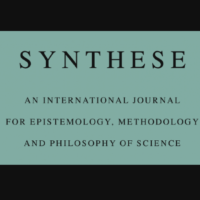
“Breaking the stigma around autism: moving away from neuronormativity using epistemic justice and 4E cognition”
New article by Amandine Catala (UQAM, CRÉ), in collaboration with colleagues Mylène Legault and Pierre Poirier, titled “Breaking the stigma around autism: moving away from neuronormativity through epistemic justice and 4E cognition”, published in Synthese.
Summary
Autistic people continue to face considerable stigmatization. Much work remains to be done to identify and tackle the causes of this stigmatization. We identify two related assumptions that generate and perpetuate this stigmatization: one ontological; one epistemic. We argue that breaking the stigma around autism requires addressing these twin assumptions. The ontological assumption presupposes the pathologization of autism as a disorder. Addressing this first assumption requires taking neurodiversity seriously and moving away from neuronormativity. The epistemic assumption posits that “allistics-know-best” and prevents allistics from acknowledging the epistemic limits of their own perspective. Addressing this second assumption requires centering Autistics’ perspectives and experiences in the production, dissemination, and use of knowledge about Autistics. To make our case against these two problematic assumptions, we draw on the key epistemological notions of standpoint, ignorance, and epistemic injustice—which have implications for all fields that concern minoritized groups and the contents produced about or with them. Fruitfully connecting our original pluralist conception of epistemic agency (which centers crucial experiential knowledge beyond mere propositional knowledge) to 4E cognition (embodied, embedded, extended, enacted), we identify a new category of epistemic injustice: ecological epistemic injustice. We then illustrate the importance of addressing the widespread yet problematic ontological and epistemic assumptions underlying the stigmatization of autism by turning to the case of applied behavioral analysis (ABA), which instantiates both neuronormativity and epistemic injustice.



